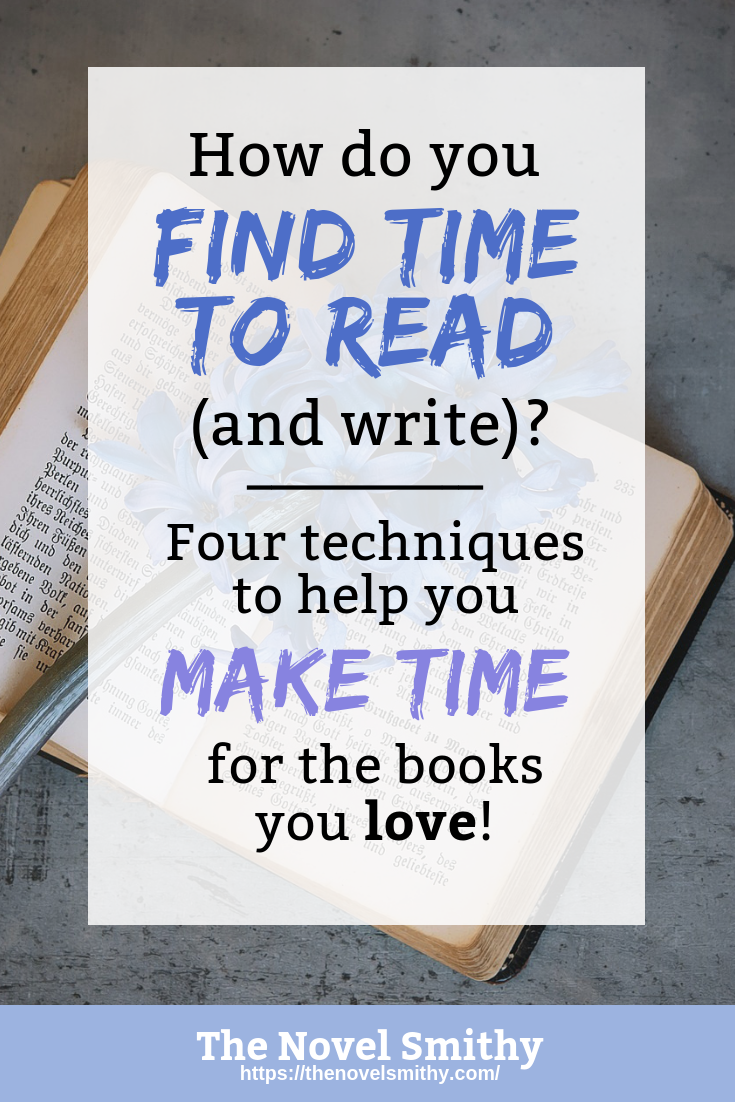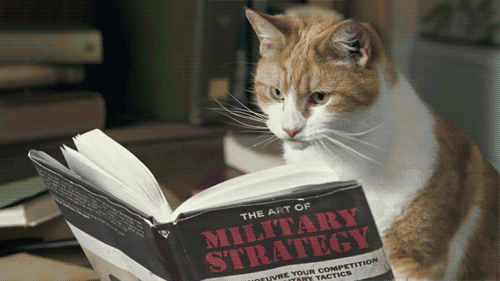How Do You Create Time to Read (and Write)?
Stephen King was right…
“If you don’t have time to read, you don’t have the time (or the tools) to write. Simple as that.”
To that end, I have a confession to make.
I haven’t been reading lately. My stack of “books to read” keeps growing, but rarely does anything get taken off it. Every night I sit down for bed having stared at my computer screen all day, never finding the time to finish the last book I started over a month ago. What’s so unfortunate about this is that my writing has suffered as well.
Writers Are Like Athletes
Contents

We both have to nourish ourselves with the fuel of our craft. While athletes need healthy food full of vitamins and protein, writers need books full of brilliant worlds and beautiful prose. Without them, our muse will starve.
I have to be honest here—It’s been a frustrating past few months.
Just like I haven’t found the time to read, work on my sci-fi novel Wolfdog has stalled as well. Other obligations always seem to get in the way of me doing what I want to most—write.
I’m sure many of you’ve had the same experience in the past. Maybe, you’re feeling it now! Or perhaps you’re trying to break free of that rut with the help of NaNoWriMo.
Regardless of where you are in your personal writing journey, finding time to read is the best thing you can do for yourself, next to actually writing.
As I’ve been mulling over this issue, I’ve been trying to find ways to fit reading back into my everyday life. Today, I’d like to share what I’ve come up with, in the hopes that maybe it’ll help someone out there who, like me, has been struggling to make time for their art.
Let’s get out of this rut together!
How I Plan to Become a Reader (and a Writer) Again
By Picking up a Book Every Day:
The first step to reading is picking up a book.
Notice how I said “picking up,” not reading.
It probably sounds silly—tasking yourself with reading a few pages or a chapter every day seems a lot more productive. But something always manages to come up, whether it’s work, family, or chores.
Personally, as a professional writer and editor, each day looks wildly different for me. Even if you have a more structured work schedule, you probably have a similar problem. You know some days you’ll only pick up that book on the top of the pile, hold it in your hands and acknowledge that you simply don’t have the time. Some days that has to be enough.

Most days however, you’ll pick up that book, leaf through the next few pages, and get sucked in all over again. Thirty minutes will pass and you’ll have read far more than you would have if you had the pressure of a page count looming over you.
Best of all, by simply picking up a book you want to read each day you get to be honest with yourself. If you’re too busy, you know that. More often than not though, it’s less that you’re too busy and more that you’re too distracted by all the little things that need doing in life.
Hopefully picking up that book will cut through the distraction and remind you what’s more important—doing the dishes, answering that last email, or feeding your muse. For myself, most days I plan to pick the later.
By Keeping a Reading Journal:
If reading feeds your muse, journaling must train it for a marathon.
There’s nothing quite like the feeling of pen on paper, and journaling is a great way to get back to that feeling. As much as I enjoy writing on my computer and appreciate the level of organization tools like Scrivener offer, taking the time to sit down with a notebook still feels like a special kind of luxury.
So here’s the journaling plan:
End each evening by jotting down one interesting thing you read that day and what you thought about it. This could be a news segment, fun information from a blog post, a quote off Pinterest, or a scene from the book you read in the previous step!
Not only will this help keep you accountable, but it’ll encourage you to think harder about what you’re reading instead of consuming it without consideration. To be a good writer you have to read, but more importantly, you have to take what you’ve read and understand its strengths and weaknesses, its flaws and triumphs.
Best of all, you can have a lot of fun with this!
You could write some flash fiction based on the news segment you read, or even just doodle for five minutes. Anything to get your creative brain working, instead of letting it stay clogged by stress and an overly long to-do list.
To be a writer, you have to read, but you also have to understand the meaning in what you've read. Share on XBy Watching Movies:
Having “watch a movie” on this list probably seems counter intuitive.
Didn’t I say my biggest problem was staring at a screen all day?
Well, I did. At the same time though, some days compromises have to be made. Some nights you’re exhausted, your eyes are drooping at the dinner table, and all you need is to sit back and absorb the colors, sounds, and stories of a good movie.
Of course, this part of the plan isn’t out of character for me. I’ve regularly talked about how much I love movies on this site. While movies can never replace a good book, they’re still a condensed and unique form of storytelling, and a great learning tool because of that! It all depends on how you approach them and, in many ways, this ties into the mindfulness of journaling—you can’t let yourself sink into the movie and consume it mindlessly.
Keep your brain active, look for the valuable story bits present, and ask yourself how the characters are developing. Better yet, jot down a rough story structure for what you’ve watched or see if you can identify any character arcs (you can even do this as a part of journaling for the previous step!)

Overall, realizing that my love of movies wasn’t a time sink, but an asset, was tremendously liberating. We watch a lot of movies in my household and thoroughly enjoy doing so. It’s nice to have found ways to learn and grow as a writer thanks to one of my favorite pastimes!
By Forgiving Myself:
Finally, I’m ending my list with the most important part of this plan—being kind to yourself.
Tell me if this sounds like you:
- You want to read more and know it’s critical to becoming a better writer, but you struggle to find time.
- You set ambitious goals to push yourself to read and write more. You’re sure you can meet them, but you fall short.
- You beat yourself up about it and are on the verge of giving up on your dream entirely.
I don’t know about you, but that sounds a lot like my younger self. I’ve trashed so many novels because I couldn’t meet the insane goals I set for myself and have given up reading many books because I had to move on to other projects. I never gave myself the time I needed to complete things to their fullest.
Only as I’ve gotten older and more experienced have I realized how important it is, not only to be realistic about your goals, but to forgive yourself when life gets in the way so you can keep moving forward. If you already struggle to find time to read every day, getting frustrated with yourself will only cloud your brain with more stress and anxiety.
Worst of all, it’ll take the enjoyment out of reading.
So if you’re feeling burnt out, give yourself license to take a break. Maybe what you need right now isn’t to read more, but to go for a relaxing walk, call a friend, or (if you’re like me) play a video game and watch a movie.
When you’re ready to keep reading, those books will be there!
How Do You Find Time to Read?
This post differs greatly from my normal content on this site. I prefer to focus on the art of writing and less on my own experiences, but this issue has been nagging at me too much to ignore. More importantly, I know there are others who struggle to find the time to read as well (especially during the holidays).
I hope all of you can use these techniques to get yourself back to being a reader! Just like you should write a bit every day, keep reading a page or two each evening and before you know it, your pile of “books to read” will have gotten smaller and smaller. 🙂


It’s true; the simplest advice is the best advice.
Really needed to read this. Thanks👍
Awesome post! I’m a 12th grade student,and I face so many struggles mentioned above while writing. Surprisingly enough, I’ve been running short on ideas because of lack of reading for several months. I hope I get more time for myself,fingers crossed!
Thanks Hermione! I can definitely see how a busy senior year would derail your reading and writing habits. I hope some of these tips help you get back into the groove! 🙂